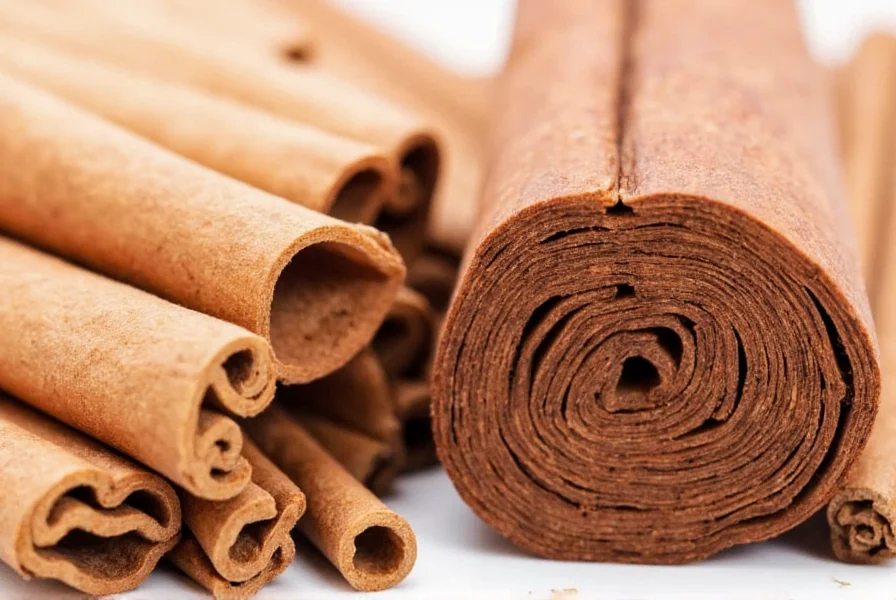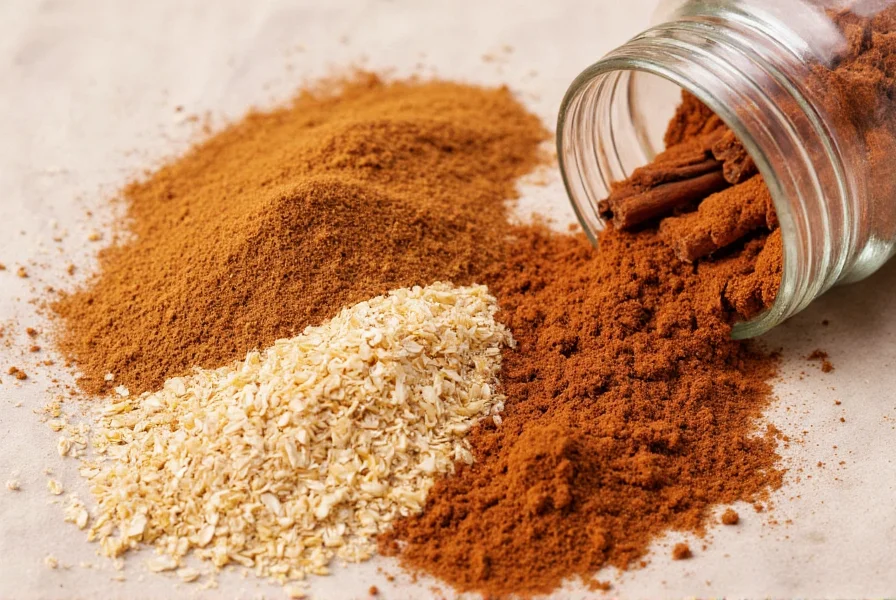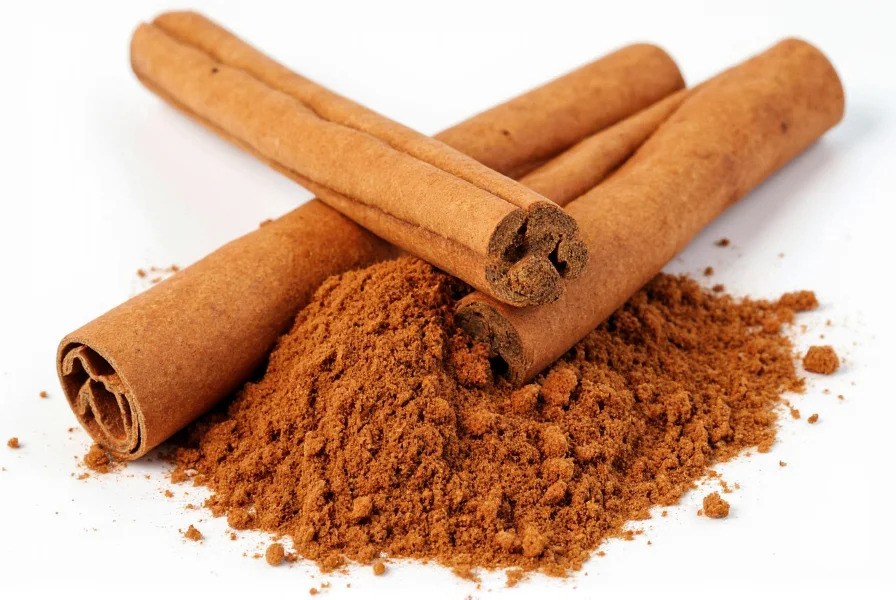Ceylon cinnamon stands apart as the premium variety of this beloved spice, offering distinctive qualities that health-conscious consumers and culinary enthusiasts should understand. Unlike the more common Cassia cinnamon found in most supermarkets, Ceylon cinnamon provides a subtler flavor profile and critical safety advantages due to its chemical composition.
What Exactly Is Ceylon Cinnamon?
Native to Sri Lanka (formerly Ceylon, hence the name), Ceylon cinnamon comes from the Cinnamomum verum tree, meaning “true cinnamon” in Latin. This variety features multiple thin, tightly rolled bark layers creating a delicate, hollow quill structure. When compared to Cassia cinnamon’s single thick, hard stick, Ceylon’s construction allows it to crumble easily between fingers—a simple identification test anyone can perform.

Ceylon Cinnamon vs Cassia: Critical Differences
Understanding the distinction between these two cinnamon types is essential for both culinary applications and health considerations. The most significant difference lies in their coumarin content—a naturally occurring compound that can cause liver damage in high doses.
| Characteristic | Ceylon Cinnamon | Cassia Cinnamon |
|---|---|---|
| Scientific Name | Cinnamomum verum | Cinnamomum cassia |
| Coumarin Content | Approximately 0.017 mg/g | Approximately 7.95 mg/g (460x higher) |
| Flavor Profile | Mild, sweet, complex with citrus notes | Strong, harsh, more pungent |
| Bark Structure | Multiple thin layers, soft, crumbly | Single thick layer, hard, difficult to break |
| Color | Light tan to medium brown | Dark reddish-brown |
Health Benefits Supported by Research
While both cinnamon varieties share certain properties, Ceylon cinnamon’s safety profile makes its potential benefits more accessible for regular use. Scientific studies indicate several promising areas:
- Blood sugar management: Multiple studies show cinnamon may improve insulin sensitivity, with Ceylon being the preferred variety for ongoing use due to its safety
- Antioxidant properties: Contains polyphenols that combat oxidative stress, though Cassia actually has slightly higher antioxidant levels
- Anti-inflammatory effects: May help reduce inflammation markers in the body
- Heart health support: Some research suggests potential benefits for cholesterol levels and blood pressure
It’s crucial to note that while these findings are promising, cinnamon should not replace medical treatment for any condition. The European Food Safety Authority recommends limiting coumarin intake to 0.1 mg per kg of body weight daily, making regular Cassia consumption potentially problematic.
Practical Uses in Cooking and Daily Consumption
Ceylon cinnamon’s delicate flavor shines in applications where its subtlety won’t be overwhelmed:
- Add to morning coffee or tea for a nuanced flavor enhancement
- Use in delicate desserts like custards, panna cotta, or fruit compotes
- Blend into smoothies for natural sweetness without overpowering other ingredients
- Create signature spice blends for seafood or poultry dishes
- Make traditional Sri Lankan rice pudding (kiribath)

How to Identify and Purchase Authentic Ceylon Cinnamon
Unfortunately, many products labeled simply as “cinnamon” actually contain Cassia. To ensure you’re getting genuine Ceylon cinnamon:
- Look for specific labeling: “Ceylon cinnamon,” “Cinnamomum verum,” or “true cinnamon”
- Check the physical characteristics: multiple thin layers that crumble easily
- Purchase from reputable specialty spice merchants rather than generic grocery stores
- Expect to pay a premium price—authentic Ceylon cinnamon costs significantly more than Cassia
- Consider buying whole sticks rather than powder for longer shelf life and easier verification
Safety Considerations for Regular Consumption
The most significant advantage of Ceylon cinnamon is its dramatically lower coumarin content. While Cassia contains enough coumarin that regular consumption could potentially exceed safe limits, Ceylon cinnamon allows for more generous daily use. The European Food Safety Authority’s tolerable daily intake of coumarin is 0.1 mg per kg of body weight. With Cassia containing up to 460 times more coumarin than Ceylon, choosing the latter variety makes enjoying cinnamon’s potential benefits without safety concerns far more practical.
For those with liver conditions or taking medications metabolized by the liver, consulting with a healthcare provider before adding significant amounts of any cinnamon to your diet remains advisable, though Ceylon presents substantially less risk than Cassia.
Conclusion: Making an Informed Choice
Understanding the differences between Ceylon and Cassia cinnamon empowers consumers to make informed decisions based on both culinary preferences and health considerations. While Cassia offers a stronger flavor at a lower price point, Ceylon cinnamon’s delicate taste profile and superior safety characteristics make it the preferred choice for regular consumption. Whether you’re using cinnamon for its potential health benefits or simply for its wonderful flavor, selecting the appropriate variety matters significantly for both enjoyment and wellbeing.
Frequently Asked Questions
What makes Ceylon cinnamon different from regular cinnamon?
Ceylon cinnamon (Cinnamomum verum) has multiple thin bark layers forming delicate quills, a lighter color, milder flavor, and significantly lower coumarin content compared to Cassia cinnamon (often sold as 'regular' cinnamon), which has a single thick, hard stick with much higher coumarin levels.
Is Ceylon cinnamon safe for daily consumption?
Yes, Ceylon cinnamon is generally considered safe for daily consumption due to its very low coumarin content (approximately 0.017 mg/g). This makes it possible to enjoy reasonable amounts daily without exceeding recommended coumarin limits, unlike Cassia cinnamon which contains about 460 times more coumarin.
How can I tell if I'm buying real Ceylon cinnamon?
Look for specific labeling mentioning 'Ceylon' or 'Cinnamomum verum,' check that the quills consist of multiple thin, papery layers that crumble easily (unlike Cassia's single hard stick), and purchase from reputable spice merchants. Authentic Ceylon cinnamon typically costs more than standard grocery store cinnamon.
Does Ceylon cinnamon have proven health benefits?
Research suggests Ceylon cinnamon may support blood sugar management, provide antioxidant benefits, and have anti-inflammatory properties. However, these potential benefits should not be considered medical treatment, and more research is needed to confirm specific health outcomes in humans.
Why is Ceylon cinnamon more expensive than other cinnamon?
Ceylon cinnamon commands a higher price due to its more labor-intensive harvesting process (peeling thin layers of bark by hand), limited growing region (primarily Sri Lanka), lower yield per tree, and growing demand from health-conscious consumers seeking the safer, lower-coumarin variety.











 浙公网安备
33010002000092号
浙公网安备
33010002000092号 浙B2-20120091-4
浙B2-20120091-4